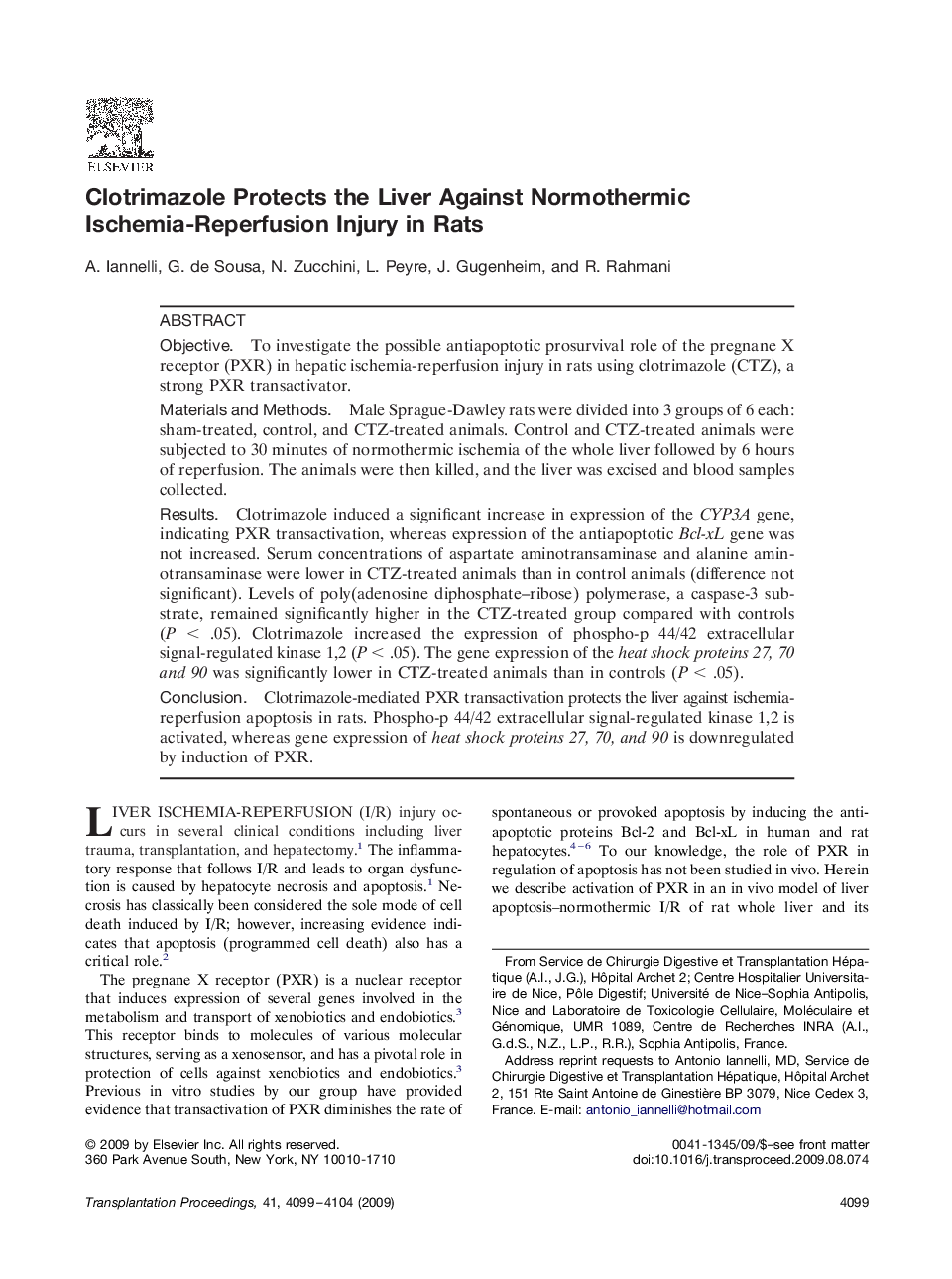| Article ID | Journal | Published Year | Pages | File Type |
|---|---|---|---|---|
| 4258468 | Transplantation Proceedings | 2009 | 6 Pages |
ObjectiveTo investigate the possible antiapoptotic prosurvival role of the pregnane X receptor (PXR) in hepatic ischemia-reperfusion injury in rats using clotrimazole (CTZ), a strong PXR transactivator.Materials and MethodsMale Sprague-Dawley rats were divided into 3 groups of 6 each: sham-treated, control, and CTZ-treated animals. Control and CTZ-treated animals were subjected to 30 minutes of normothermic ischemia of the whole liver followed by 6 hours of reperfusion. The animals were then killed, and the liver was excised and blood samples collected.ResultsClotrimazole induced a significant increase in expression of the CYP3A gene, indicating PXR transactivation, whereas expression of the antiapoptotic Bcl-xL gene was not increased. Serum concentrations of aspartate aminotransaminase and alanine aminotransaminase were lower in CTZ-treated animals than in control animals (difference not significant). Levels of poly(adenosine diphosphate–ribose) polymerase, a caspase-3 substrate, remained significantly higher in the CTZ-treated group compared with controls (P < .05). Clotrimazole increased the expression of phospho-p 44/42 extracellular signal-regulated kinase 1,2 (P < .05). The gene expression of the heat shock proteins 27, 70 and 90 was significantly lower in CTZ-treated animals than in controls (P < .05).ConclusionClotrimazole-mediated PXR transactivation protects the liver against ischemia-reperfusion apoptosis in rats. Phospho-p 44/42 extracellular signal-regulated kinase 1,2 is activated, whereas gene expression of heat shock proteins 27, 70, and 90 is downregulated by induction of PXR.
